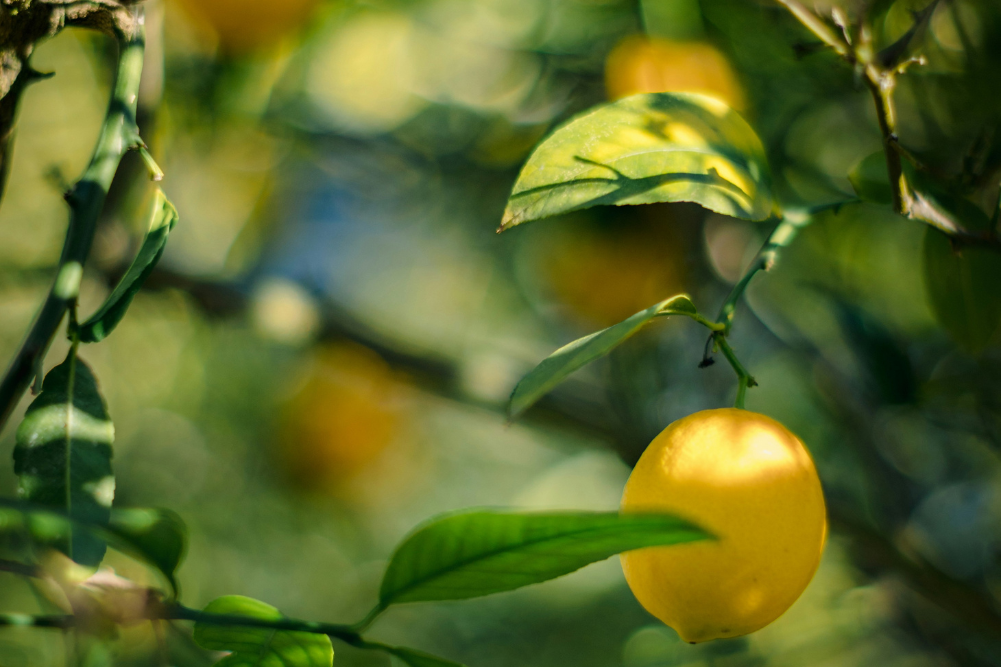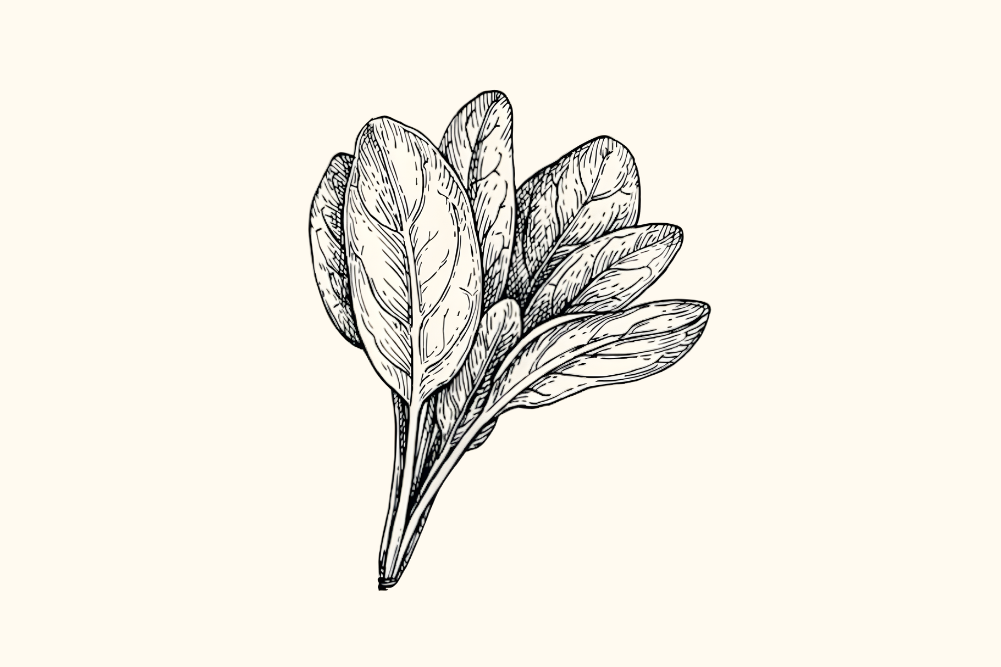Gardening for self-care — the wellness tool you need right now
Gardening is a powerful self-care tool that can ground and centre you in times of uncertainty.
Sowing the seeds of a wellbeing mindset begins with getting your hands in the earth. Gardening naturally boosts your mood; it nurtures relationships, promotes a healthy lifestyle and reduces your environmental impact.
It also gets you physically fitter. With gardening activities such as pulling weeds and planting, you’ll burn around 630 kilojoules per half hour, according to Fitness Australia, the national health and fitness industry association. And it will help to improve your flexibility, endurance and stamina. When gardening, you’re also being exposed to fresh air and vitamin D, both of which are essential to good health.
In the global pandemic, gardening became a way for many to work their way through the chaos and confusion. They couldn’t control what was happening on the world stage, but they could do something. Seeds and seedlings flew off the shelves as novice gardeners flexed their green thumbs and turned urban patches of dirt into leafy productive gardens to feed their families. Community gardens flourished and friendships bloomed as neighbours swapped seedlings and cuttings.
Amid the flurry of digging, sowing, planting, weeding and harvesting, a collective consciousness emerged. People realised that gardening is also a powerful self-care tool that serves to ground us in times of uncertainty.
Many have now learned that in troubling times, we can seek solace in nature. They’ve discovered what Hannah Moloney, director of Good Life Permaculture and ambassador for Community Gardens Australia has perhaps always instinctively known. “I don’t know what I’d do without gardening,” she says. “I think I’d feel lost; it’s a touch point for me to remind me who I am; it’s quite profound,” she says.
Moloney says COVID-19 was a huge shock for everyone, but those who had or built edible gardens had a level of resilience. “We had a whole landscape of food, and while the shops were running out of fresh produce, we were giving it away to our friends and our community as we had so much to share.”
Home-grown therapy
The practice of horticulture therapy, the understanding of how plants and gardening can improve physical and mental wellbeing, has been around a while. According to the Australian and New Zealand Mental Health Association, in ancient Egyptian times physicians would prescribe walks in the garden to alleviate anxiety and worry.
Karen Gray, horticulture therapist and co-author of Nature Heals, says horticulture therapy is empowering because it gives people with anxiety, depression or a disability a purpose and a focus outside themselves, which helps them to reconnect with life. “I’ve worked with young adults who’d never experienced growing anything, and witnessed pure joy as they grow a lettuce for the first time — their confidence grows as they realise ‘I can achieve something. I can keep a plant alive and I can grow food for my family,’” she says.
Good vibes
No matter who you are, getting out into the garden not only builds self-esteem but also promotes a raft of psychological benefits. Gray says it really is the ultimate feel-good tonic. “From being outdoors in fresh air and sunshine, to growing nutritious organic food to feed the people we love, reducing stress and lifting our spirits, it grounds us, it connects us on a deeper level to the earth,” she says.
In Japan there is a practice called “forest bathing” or shinrin-yoku, which means bathing in the forest atmosphere or taking in the forest through your senses. Dr Qing Li, Chairman of the Japanese Society for Forest medicine says forest bathing can reduce stress, improve mood, creativity and concentration, and provide a host of other positive outcomes.
The good news is you don’t need a forest. You can create a leafy green space at home to immerse yourself in your own garden and reap the benefits.
Banishing the blues
Want to bounce out of bed with a spring in your step and a twinkle in your eye? Grab those gardening tools and start planning your next gardening project. It’s hard not to feel happy when you’re in among leafy trees and fragrant blooms.
Research overwhelmingly shows that those who garden are a much happier bunch, with greater resilience and life satisfaction, than those who don’t. In a calm green environment, cortisol levels are reduced and feel-good chemicals are released. Researchers at the University of Bristol have shown how gardening naturally boosts your mood. Led by Dr Chris Lowry, they discovered, through examining the brains of mice, that the friendly bacteria found in soils activate neurons that produce the brain chemical serotonin.
Did you know that even looking at a tree can make you feel better? That’s the advice of Professor Virginia Lohr from Washington State University whose work has shown looking at trees makes people feel calmer than looking at inanimate objects. The more spreading the tree form, the better you’ll feel.
It doesn’t take long for those feel-good vibes to kick in either. Kate Lee and colleagues from the University of Melbourne showed just 40 seconds of viewing a green roof versus a concrete one boosted the study participants’ attention span.
Dig a little deeper and you’ll find many more compelling reasons to get out in the garden. Gray says that gardening reminds us that we are part of nature and all the life systems it supports. “We take a deep breath and listen to birds, we see the tiniest of native bees harvesting nectar, we feel a sense of joy as we pick a bunch of brightly coloured flowers to share, we taste the crisp freshness of a snow pea or touch the smooth texture of a zucchini while thinking of the healthy recipes to follow,” she explains.
Mindfulness matters
Next time you are in the garden, kick off your shoes. Moloney says feeling the ground under your feet connects you in a very real way with the earth. “And if I’m feeling flustered or overwhelmed, I lie down on the grass — the closer physical contact we can get with the earth, the better,” she says.
Going within, to a place of quiet contemplation in the garden, can also have some surprising benefits. Moloney says that doing repetitive tasks like milking her two goats every morning quietens her mind. “Time moves slowly and it’s peaceful. It’s also when I have my best ideas, my brain calms down and these great thoughts emerge — they’ve been there the whole time; they just couldn’t get out.”
A sense of accomplishment
Gardening offers a sense of achievement for grown-ups and kids. The feeling of nurturing something with your bare hands is infinitely satisfying. Preparing a meal with vegetables you’ve grown in your little patch is very rewarding.
Getting out in the garden is a great place for the kids to not only blow off steam but to learn something that can enrich their lives. And if they grow their own fruits and vegetables, they’ll eat better too. That’s because children are more inclined to eat something they have grown. Researchers at St Louis University have shown after interviewing 1600 parents that pre-schoolers were more than twice as likely to eat five servings of vegetables a day than those who rarely or never ate home-grown produce.
Freshly picked fruits and vegetables plucked straight from the garden are also more nutrient-dense and tastier than those that have languished on supermarket shelves for days or even weeks. And if you grow your own produce you can choose organic and pesticide-free, so it’s much healthier to boot.
Spending time in a garden improves a child’s cognitive development, their gross and fine motor skills, and also their literacy skills as they learn the names of plants. Gardening also enhances your together time too. Both parent and child will look back fondly at sweet memories they shared in their own backyard in nature.
Many parents have treasured memories of their own childhood spent with their parents and grandparents in the garden. Picking fresh tomatoes from a vine as the juice dribbles down your chin, gleeful smiles and giggles as the kids spray each other with hoses instead of watering the plants or gathering armfuls of fragrant blooms (and a few weeds thrown in) to gift to friends.
Working with nature
Gardening not only encourages us to plant and harvest our own food and flowers, it allows us to grow as humans. We learn from our mistakes, and we understand that no matter how hard we try we are not in control of this universe.
Natural rhythms within nature are all around us: our heartbeat, our breath as we inhale and exhale and the seasons as they ebb and flow. At times in a garden you’ll reap a bountiful harvest, and at others things won’t go to plan. We see farmers who look to the heavens for rain that never comes, and those whose crops are decimated by insect plagues — they know that nature is unpredictable. Within that comes acceptance, that at times we can do our very best, nurture the soil, feed the crops, but things out of our control can happen.
Dr Sue Stuart-Smith, author of The Well Gardened Mind, says gardening is indeed a living relationship in which we are not completely in control. “When you make an intervention in the garden, you have to wait to see what happens, to notice and you have to respond,” she says. “It forces us to slow down and we become part of something much larger than ourselves.”
Time poor? No excuses
Green interventions to soothe and boost mental wellbeing are becoming increasingly accepted. We all lead busy lives, so even if you are short on time or don’t have green space to plant an ornamental garden or vegetable patch, it’s still possible to immerse yourself in the feel-good benefits of gardening.
Dr Stuart-Smith suggests that even if you are busy or new to gardening you can grow things that are dependable, which will give you results relatively quickly. “Nasturtiums and sunflowers for example are both colourful and easy to grow,” she says. “And if you don’t have a garden, you can still bring green nature inside by growing herbs on the window sill or introducing flowers or potted plants into the house.”
Building positive connections
Gardening builds a sense of community that can also make us better people.
Dr Stuart-Smith says while research shows that gardening alleviates anxiety, revitalises cognitive functioning and more, the presence of plants and trees also shifts us towards being more generous and empathetic. “This has been called the ‘pro-social’ effect of nature,” she says.
Basically, this means exposure to nature can improve social connection and build unity and solidarity. Specific pro-social behaviours linked to exposure to nature include greater orientation to others — gardeners seek out other gardeners.
Gray says gardeners are by and large a very friendly bunch. “You become part of the ‘gardening tribe’,” she says. While under “stay at home” orders during the pandemic, her family met many neighbours on their daily walks. “We added some colourful plants on the footpath, a fun scarecrow and an old bench seat with ‘rest-a-while’ painted on it, to encourage people to stop and chat,” she says. “Soon we were sharing cuttings and seeds and some neighbours extended an invitation to the area’s garden club.”
We’ve got this
The global pandemic shook the world, at times clawing at the very beating heart of our humanity. But we were up to the task. Edible gardening became a huge part of building community and household resilience. We found new ways to connect with each other through gardening. We took our kids outdoors and taught them how to grow their own food. We shared the bounty of our home-grown produce with our communities. The pandemic has taught us that humans are spirited — we evolve, we learn, we grow — and perhaps most importantly that no matter what, we have each other.
Carrol Baker is a freelance journalist who writes for lifestyle and health magazines across Australia and New Zealand.







